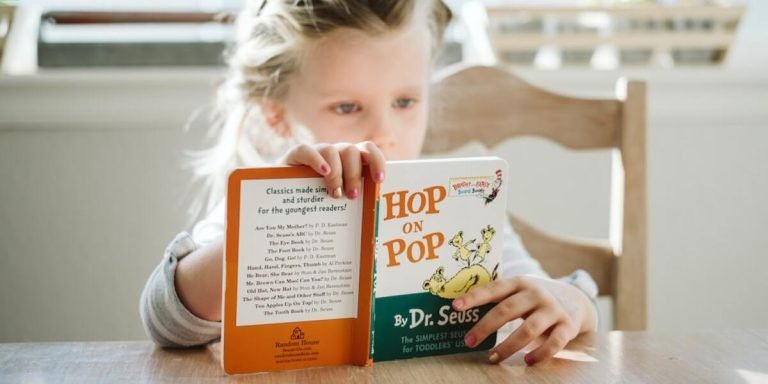Virginia Home Schooling: A Comprehensive Guide for Parents and Educators
Diving into a new venture as an educator or a parent can be daunting, especially when it involves guiding young minds. Particularly, “Virginia home schooling” is an aspect where the stakes seem high and understanding all prerequisites becomes obligatory. As both parents and educators embark on this fulfilling journey to educate youngsters at home in Virginia, they often find themselves surrounded by numerous questions – Where do I start?
What are the legalities involved? How does curriculum selection work?
This comprehensive guide aims to break down those complexities associated with Virginia home schooling; providing clear answers for your queries while also offering useful tips along every step of this rewarding expedition. Unraveling intricate processes from choosing suitable curricula to constructing optimal learning environments – our endeavor is to create clarity amidst chaos that often accompanies such transitions. In time, you may notice not only academic growth but personal development too among learners embraced within these soothing confines of homeschooling.
Did you know?
Did you know that Virginia is one of the states with very flexible homeschooling laws? Parents are even allowed to educate their children at home without a teaching degree.
Understanding Virginia Home Schooling Regulations
Navigating the education system often feels like a daunting task for parents, especially when considering home schooling as an option. Virginia is one state that boasts well-defined homeschooling regulations designed to provide a comprehensive and enriching educational experience right at home. As we dive deeper into this topic in 2023, it’s clear that technology integration plays an essential role in facilitating effective learning within the domestic setting.
Firstly, embracing technological advancements has made adhering to Virginia’s specific curriculum requirements simpler than ever before. In tandem with traditional textbooks and real-world experiences, online resources play a significant part in delivering balanced and thought-provoking content across key subjects such as math, science or English language arts. Digital platforms offer interactive tools which can easily align with each child’s unique learning pace while meeting set standards mandated by Virginia law.
Moreover, since record keeping is central to compliance under Virginian laws revolving around homeschooling; digital solutions have streamlined this process remarkably too! From maintaining attendance records to documenting student progress through portfolios or test scores—all possible via user friendly tech-based applications. Thus offering even greater feasibility for parents embarking on their journey of providing quality education from within their homes here in VA.
Navigating the Declaration of Intent to Home Educate in Virginia
In Virginia, home schooling is an appealing choice for many parents and guardians. Understanding the declaration of intent to educate at home in this state is a critical first step when considering taking up this role as your child’s educator.
According to the Home Instruction Statute Section 22.1-254.1, every parent or guardian who decides to homeschool their children must submit a ‘Declaration of Intent’ form once per academic year by August 15th to the local school division superintendent that highlights their decision – it’s an important part of complying with “virginia home schooling” regulations.
The document includes basic information such as names, ages, and grade levels of students being homeschooled along with subjects you plan on teaching during that school year – thus giving officials insight into your curriculum outline.
Incorporate tech tools in education today (2023) to not only enhance learning experiences but also to meet certain legal requirements more efficiently. Here’s how:
1) Electronic Submissions: First off , going digital makes compliance far easier than ever before. Most divisions accept electronic submissions reducing postal delays or lost forms.
2) Online Learning Platforms & Apps: Utilizing resources like online courses corresponding grades via e-learning platforms has become commonplace nowadays; satisfying proof-of-progress rules required annually while adding convenience and versatility into daily lessons.
Adhering to Home Instruction Laws and Evaluations
For parents considering home schooling in Virginia, understanding and adhering to the specific regulations is crucial. This involves a clear comprehension of the Commonwealth’s instruction laws as well as regular evaluations to verify progress.
The first law that you need to be aware of pertains directly to “Notice of Intent.” Annually, before August 15th, parents must submit this notice along with their curriculum description or an overview for each subject intended for study throughout the year. The primary goal here is not so much about defining every minuscule detail but rather providing sufficient clarity on your educational objectives and strategies related specifically toward home education using technology integration.
However, it’s essential not just ticking boxes off a list; successful virginia home schooling also hinges significantly upon how effectively parents can integrate lessons into daily life while incorporating modern technological tools. How smoothly you navigate these paths will ultimately determine whether your child receives comprehensive learning opportunities aligned with traditional school systems’ standards or even outshines them.
Evaluations form another key component in virginia homeschooling laws designed exclusively around ensuring students are progressing at par with their peers studying under standard public school curriculum models. These include standardized testing or academic assessments by qualified individuals reviewing work samples during set intervals across an academic year – usually once annually but could vary based on circumstances .
Crafting a Tailored Curriculum for Virginia Home Schoolers
Technology in education offers vast opportunities for adaptive and interactive engagement that traditional classroom teaching may not provide with ease. For parents embracing homeschooling in Virginia, these advancements become fundamental tools to formulating an effective curriculum which can cater both – their child’s educational needs and individual interests.
The beauty of tailoring your own curriculum involves employing technological resources such as online platforms, apps, e-books or instructional videos without compromising on standard regulations set by The Virginia Department of Education (VDOE). Parents can curate lessons via digital mediums ensuring they are within legal guidelines while also molding them according to their children’s pace and style – creating truly bespoke patterns conducive for maximum absorption of knowledge.
Exploring Standardized Test Options for Assessment Compliance
In the realm of Virginia home schooling, one hurdle that parents often face is navigating through assessment compliance measures. These usually include standardized tests options and it’s essential to comprehend what they entail.
Standardized testing is a common method for assessing student learning outcomes in traditional school settings. For those who have taken up the task of educating their kids at home, these assessments become crucial indicators of academic progress too.
The process starts by recognizing various standardized test options available for homeschoolers in Virginia. This includes nationally recognized exams such as Stanford Achievement Test (SAT), California Achievement Test (CAT), or Iowa Tests of Basic Skills(ITBS). There are also state-specific exams, like the Standards Of Learning(SOL) required when teaching specific courses mandated by Commonwealth education guidelines.
Each option comes with its unique set-up demands and scoring criteria which might better suit your child’s individual needs. Hence you need to ponder upon characteristics such as age appropriateness, subject matter relevance; plus how well certain formats align with your kid’s learning style before making a choice.
One should remember though, while scores from these standard tests serve an important purpose – providing objective data about students’ knowledge base – they don’t define everything about your pupil’s intelligence or aptitude levels nor do they give insight into creativity levels or critical thinking skills – areas where many homeschooled children excel remarkably.
Integrating Virginia Standards of Learning into Your Custom Curriculum
When it comes to Virginia home schooling, one of the essential facets is integrating the Virginia Standards of Learning (SOLs) into your custom curriculum. Achieving this requires a balance between adhering to mandated learning goals and tailoring education for individual children’s needs – all while leveraging technology.
The SOLs provide consistent standards in key subject areas like English, Math, Science, History/Social Sciences etc. They offer a comprehensive framework but can seem overwhelming when intertwined with personalized learning paths unique to each homeschooler.
Start by getting familiarized with SOL documents available online on virginia.gov/education website which thoroughly outline expectations for every grade level across various subjects. Using digital tools will make sifting through these extensive resources significantly more manageable!
Next step involves aligning diverse educational technologies such as apps or websites designed explicitly around teaching state-mandated curriculums making them tailored fit for homeschoolers too! There are several platforms providing access to hundreds of lessons aligned directly with specific SOL objectives thereby streamlining process further.
Networking and Support Systems for Virginia Home-Schooled Students
The advent of Virginia home schooling has brought a much-needed revolution in the education system. With an enormous amount of families opting for homeschooling options, it is evident that our traditional educational institutions have limitations. The modern era requires innovative teaching techniques and these can be efficiently incorporated with technology integration in education at home schools.
Networking is pivotal in this dynamic landscape. Parents seeking tips and students searching for project insights engage in more synergistic learning within a community environment. This rings especially true for those homeschooling, where isolation might otherwise be overwhelming.
Parents and students can enhance knowledge sharing and foster meaningful relationships by leveraging social networks and forums to discuss:
- Curriculum specifics
- Lesson plans
- General queries about Virginia homeschooling laws
These platforms support individuals pursuing similar educational paths.
Moreover having robust support systems ensures continuity of information exchange offering real-time solutions to immediate problems. It’s always reassuring to know you’re being backed by people who understand what you’re going through because they’ve been there themselves taking vital decisions pertaining to their child’s future based on evolving pedagogical principles. In essence, integrating technology into various facets of childhood education seamlessly intertwines practicality with convenience thus paving way towards advanced learning experiences deserving appreciation worldwide.
Leveraging Local Homeschool Co-ops and Collaborative Groups
In today’s technologically advanced world, the dynamics of educating children are evolving. Home schooling in Virginia offers a blend of flexibility and personalized education tailored specifically to your child’s needs. However, networking and building support systems for home-schooled students can be a challenge that many parents face.
One effective strategy is leveraging local homeschool co-ops and collaborative groups. These organizations provide an invaluable platform where families involved in virginia home schooling can connect with others following similar educational approaches.
Local homeschool co-ops serve as meeting ground where parents exchange ideas on innovative learning methods while providing mutual encouragement. They often arrange activities like field trips or group lessons which contribute immensely to broaden the student’s exposure beyond traditional classroom boundaries.
By integrating modern technology into these platforms through digital tools such as virtual classrooms or community forums, interaction among members becomes easier than ever before.
Moreover, joining these interactive platforms allows you to stay abreast of changes in regulations pertaining to home schooling laws within Virginia state jurisdiction along with keeping taps on upcoming events relevant for your child’s academics .
Additionally, they present opportunities for social interaction among homeschooled kids fostering their interpersonal skills vital when navigating life outside academic sphere in future years ahead .
Utilizing Online Resources and Forums Specific to Virginian Educators
With the advent of technology, “Virginia homeschooling” has become seamless and efficient. The use of online resources and forums specific to Virginian educators is pivotal in providing a robust support system for those delving into childhood education from home.
Firstly, networking platforms are invaluable spaces where parents can exchange ideas about various educational methodologies. It provides first-hand insight into problems you might face during this process, as well as creative solutions that have worked for others in similar situations.
Online communities such as Virginia Homeschoolers Connect or HEAV (Home Educators Association of Virginia) act like gold mines full of resources ranging from curriculum guides specifically tailored to the standards laid out by the state’s Department Of Education, legal advice on homeschooling laws applicable only within Virginia borders and key dates important to any VA educator’s calendar including standardized testing periods or annual conventions.
Secondly comes accessibilities to several free digital libraries categorizing hundreds if not thousands educational e-books geared towards different age groups & subjects- an indispensable resource when building your child’s reading list!
Additionally there are myriad websites dedicated entirely towards virtual field trips; places too far away geographically but brought right up close through interactive videos! A fantastic way clubbing fun with learning without ever stepping foot outside their residence – no more worrying over transportation logistics trying plan real-world field visits!
Conclusion
In conclusion, understanding all the nuances of Virginia home schooling may seem like an uphill task. However, with a clear guide and supportive community at your disposal, it becomes significantly less daunting and infinitely more rewarding journey. Unpacking each aspect will result in providing children a high-quality education tailored specifically to their needs while being within the comfort of their homes.
We invite you to linger on our website for additional resources around educating children – from a spectrum ranging novice homeschoolers seeking advice to veteran educators looking for fresh insights or ideas. Dive into guides brimming with practical tips, share experiences & anecdotes with other parents/educators via forums or explore variegated perspectives through myriad articles related not just virginia home schooling but on broader aspects of childhood education as well. Embark on this noble mission together; let’s democratize and demystify homeschooling!







